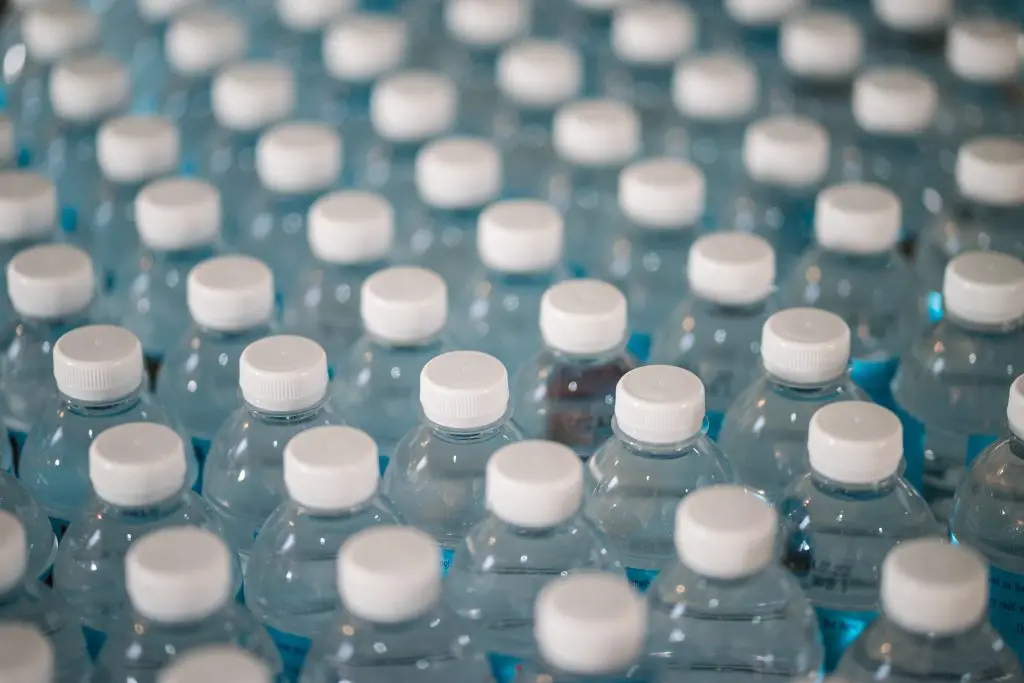You’re out on a hike, and you stop to take a sip of water from your plastic water bottle. You screw the cap back on, and continue on your way. But what you may not know is that your plastic water bottle is a major fire hazard. In this blog post, we will explore the reasons why your plastic water bottle is a fire hazard. We will also provide some tips on how to avoid such hazards and how to keep yourself safe when using plastic water bottles.
The dangers of plastic water bottles
If you’ve ever left a plastic water bottle in your car on a hot day, you know how quickly it can become misshapen and sticky. But what you may not realize is that those same qualities that make plastic water bottles so dangerous in the heat also make them major fire hazards.
When plastic is heated, it releases chemicals that are highly combustible. So if you’re using a plastic water bottle to hold gasoline or other flammable liquids, there’s a good chance that it could ignite and cause an explosion.
And even if you’re not using your water bottle for anything flammable, it can still be a fire hazard. If it’s left in direct sunlight, the heat can cause the plastic to warp and eventually melt. And if it’s thrown into a fire, the chemicals released by the melting plastic can be toxic and dangerous.
So next time you’re packing for a camping trip or heading out on a hike, be sure to leave your plastic water bottles at home. And if you must bring one with you, be sure to keep it away from any sources of heat or flame.
How to properly dispose of plastic water bottles
Assuming that you’re referring to plastic water bottles that are empty and have been rinsed out, the best way to dispose of them is to recycle them.
If you live in an area with municipal recycling, simply place the bottle in your recycling bin. If you don’t have access to municipal recycling, there are a number of ways you can recycle plastic water bottles on your own.
One option is to reuse the bottles yourself. This could mean using them for storing water or other beverages, or using them for gardening purposes (such as watering plants).
Another option is to upcycle the bottles into something else entirely. For example, you could use them to make a bird feeder or wind chime. There are plenty of creative ways to recycle plastic water bottles – it just takes a little bit of imagination!
Of course, if neither of these options is possible or desirable, then you can always just throw the bottle away in the trash. However, it’s important to note that plastic takes a very long time to decompose, so it’s not the most environmentally-friendly option.
The benefits of reusable water bottles
When it comes to fire safety, reusable water bottles are a major hazard. According to the National Fire Protection Association, plastic water bottles are one of the top causes of residential fires. In fact, plastic water bottles are responsible for more than 16,000 fires each year.
There are several reasons why plastic water bottles are such a fire hazard. First, they are made of highly flammable materials. When exposed to heat, these materials can ignite and cause a fire. Second, plastic water bottles often contain combustible liquids, such as gasoline or cleaning fluids. If these liquids catch fire, the entire bottle can become engulfed in flames.
Third, many people store their plastic water bottles in close proximity to other flammable items, such as lighters or matches. This increases the risk of a fire spreading from the bottle to other nearby objects. Finally, plastic water bottles are often left in hot cars or on sunny windowsills, where they can reach temperatures that exceed the melting point of the material. If a bottle melts and collapses in on itself, it can easily become a fireball.
Fortunately, there are some simple steps you can take to reduce the risk of a fire involving a reusable water bottle. First, always store your bottle away from heat sources such as stoves or radiators. Second, never leave your bottle in a car or in direct sunlight for extended periods of time. Third, only fill your bottle with cold beverages; avoid using hot liquids or adding
How to choose a safe and sustainable reusable water bottle
When it comes to choosing a reusable water bottle, there are a few things you should keep in mind in order to ensure that you’re picking a safe and sustainable option. First, make sure that the bottle is made of non-toxic materials like stainless steel or glass. Second, check to see if the bottle is BPA-free. Third, look for a bottle with a wide mouth so that you can easily clean it. Finally, choose a bottle with a durable construction that won’t break easily.
Final Thoughts
I hope this article has shown you why your plastic water bottle is a major fire hazard. I know it’s easy to forget about the dangers of fire when we’re out enjoying ourselves, but it’s important to be aware of the risks. By following these simple tips, you can help keep yourself and your loved ones safe from harm.

